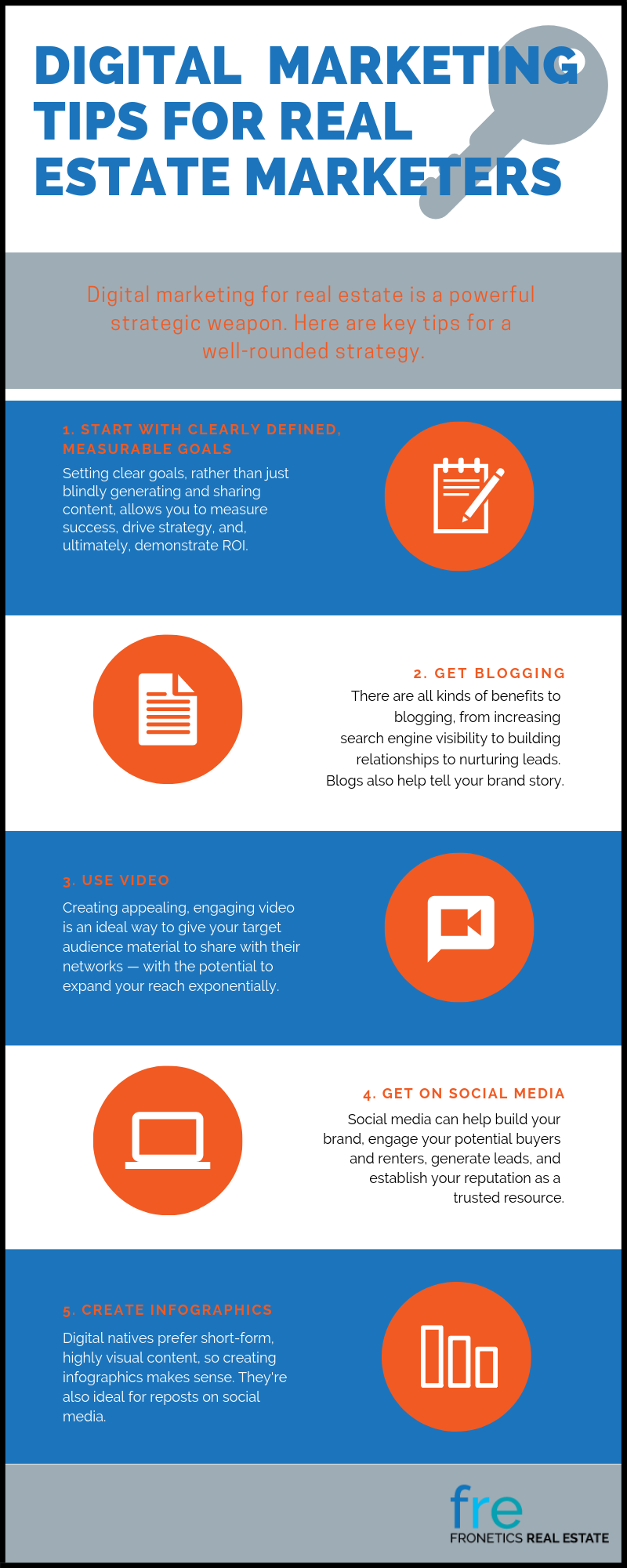Your search results for "Reliable CPC-CDE-RECERT Braindumps Sheet 🍳 Best CPC-CDE-RECERT Practice 🔚 Test CPC-CDE-RECERT Sample Questions 💉 Easily obtain free download of ▶ CPC-CDE-RECERT ◀ by searching on ☀ www.pdfvce.com ️☀️ ✊Exam CPC-CDE-RECERT Study Solutions"

How Will Facebook Marketplace Housing Affect Real Estate Marketers?
Facebook Marketplace has added a Housing section, which lists property for sale and property rentals.
If you’re a real estate marketer, Facebook’s newest foray into the social marketplace is likely to impact your strategy. In November, the ‘Book announced that it would begin allowing users to search for housing rentals and sales on its Marketplace platform.
For those who are unfamiliar, Marketplace is Facebook’s answer to Craigslist — a platform that lets users buy and sell items near them. The new housing section allows individuals —including brokers, agents, and property managers — to list their available properties. Additionally, the company has partnered with Zumper, Apartment List, and other third-party sources to add “hundreds of thousands” of rental listings.
Listers can add 360-degree photos so potential buyers and renters can take a virtual tour from the comfort of their couches. Those searching for properties can filter by location, price, number of bedrooms, square footage, etc.
Facebook’s Bowen Pan says, “Marketplace is a popular place for people to look for a home to rent. Now that we’re adding listings from Apartment List and Zumper, people can search even more options in the U.S. to find a place to call home.” The company aims to “bring ease and convenience to customers” with this addition.
How should you approach Facebook Marketplace?
As a real estate marketer, this presents another opportunity to get your property in front of potential buyers and renters. Here are some points you need to know to successfully list your property on Facebook Marketplace Housing.
User search criteria
Facebook is using its powerful search algorithm to let users narrow their rental search based on location, price, size, number of bedrooms, and even if an apartment is pet-friendly. This means making sure all your listings have accurate and specific details. The more specific you get, the more your target audience can find you.
Facebook is location specific
As with Craigslist, Facebook Marketplace lets users select and search within their area. More than likely, you’re already keeping track of demographic data for your target buyer or tenant base. Make sure that as you list your properties on the sites that Facebook pulls from, or on Marketplace itself, that you’re keeping in mind that target demographic, and including location markers that will help your property show up in their searches.
Facebook’s goal is to be a one-stop shop
If you’re aware of this fact, it can help you. Facebook is positioning Marketplace to become a one-stop commerce platform for food, shopping, and even job hunts. How does this impact your marketing efforts? Know that when users come to Marketplace, they are primed to be interested in all aspects of their housing prospects — from dining to neighborhood attractions to community events.
This is where your content marketing strategy comes into play. By providing content about various types of information about the area surrounding your listing (top restaurants, employers in the area, what to do on a weekend, etc.), you’re poised to capture the lasting attention of your potential buyers or tenants.
Related posts:
- What Metrics Should You Track in Real Estate Marketing?
- Top 10 Real Estate Marketing Posts 2017
- 4 Tools for Determining the Best Time to Post on Social Media for Your Property
Your search results for "Reliable CPC-CDE-RECERT Braindumps Sheet 🍳 Best CPC-CDE-RECERT Practice 🔚 Test CPC-CDE-RECERT Sample Questions 💉 Easily obtain free download of ▶ CPC-CDE-RECERT ◀ by searching on ☀ www.pdfvce.com ️☀️ ✊Exam CPC-CDE-RECERT Study Solutions"

10 Quick Ways to Grow Brand Awareness
If you want to grow brand awareness, or ensure potential buyers know your property exists, try these strategies.
If you’re building a new property, or just rebranding an old one with a bad reputation, you want to get the word out quickly about what your project is all about. It’s called brand awareness.
For real estate developers and property management companies, brand awareness means that your target buyers (or tenants) know that your property exists. They understand the lifestyle that the property offers.
To grow brand awareness requires a proactive approach. Some companies turn to traditional methods, such as billboards. But it’s important to think about your digital strategy, as well, since the vast majority of real estate research occurs online.
Check out these 10 ways to use content marketing to grow brand awareness quickly.
10 ways to grow brand awareness — fast
1) Establish your brand.
To grow brand awareness, you must first have a brand. This, generally, is the message of your property describing the kind of lifestyle it affords people who live there.
You need concrete creative assets, like a logo and images, and other non-tangibles, like taglines and a defined look and feel. You also need a consistent brand message, which you should develop based on detailed buyer personas laid out as part of the brand-creation process. If you’re selling luxury condos, for example, all of these assets, the tone and voice of your marketing collateral, and even the platforms you decide to participate in should reflect a sense of sophistication and elegance.
Take the time to develop your full brand story, so that you have something (a lifestyle that transcends brick and mortar) to sell to prospective buyers and renters.
2) Start a blog.
You might think that it seems silly to keep up a blog for your property. Who would even want to read it? But a blog can actually help you sell real estate by increasing the amount of traffic search engines send to your website.
The more you publish, the higher you’ll rank with search engines. And every time you publish a blog post, you increase the chances that a user searching the internet for real estate will find your website.
Blogs also help tell your brand story. They help buyers imagine themselves in your space. They nurture leads and build trust among potential buyers. In a recent audit of a client’s website, we found that people who read the blog converted at an almost 30% higher rate than other web traffic. That’s significant.
3) Become a resource.
Bear with me on this one. But I’ve seen this work many, many times.
Content marketing is all about being a trusted resource for your audience. Ditch the blatant sales pitch in your content and think about how you can help your target buyers instead.
Offer guidance on purchasing a home, information about your property’s neighborhood, or tips on upcoming events in the area. You’ll build trust with your current audience and provide them with content they’re more likely to share with their friends and followers. And that is how you grow brand awareness.
4) Make sharing easy.
This is a great way to let your successes go to work for you. Make it easy for your audience and followers to share your content with their networks. Give them sharing options for email, social media — heck, put share links on anything and everything. Social media is a powerful tool in selling real estate. Don’t underuse it.
5) Start content partnerships.
Again, this is all about leveraging other people’s audiences to spread the word about your property and brand.
Reach out to local real estate media sites and blogs to see if you can author a post for them. See if a local interior designer or financial planning professional would like to write a guest-post series for your blog, and ask them to share it on their social media accounts. Basically, create two-way content partnerships where you will ensure that your brand’s name will come across the screens of an influencer’s audiences.
6) Partner with local businesses.
By its nature, real estate is a location-oriented industry. You can partner with businesses in your area to hold seminars or festivals, sponsor sports teams, and donate to charity events.
This works in the digital world as well. On social media, promote the opening of new neighborhood restaurants, and congratulate nearby businesses when they win local best-of awards. Join online charity challenges to support local causes. Build your digital network of local businesses and organizations so that your brand becomes synonymous with the neighborhood wherever locals browse online.
7) Hold social media contests.
Everybody loves to win a contest. Use your social media platforms to create contests in which followers submit a photo or video, and let other users vote for their favorites. Contestants will share the link with their networks, and your brand awareness grows exponentially.
8) Try paid social advertising.
Facebook and Twitter ads are relatively cheap, and both platforms do a great job of making sure your content gets to your target audience. You can set metrics, and customize your preferences for targeted audience in a huge variety of ways.
9) Leverage influencer marketing.
Think beyond buyers themselves. Who influences them when it comes to making major purchases? Beyond family, financial professionals, interior designers, and, of course, brokers represent strong spheres of influence in the real estate space.
Create targeted campaigns to reach these influencers via email, social media, and digital advertising. Getting your name in front of them is one step in the direction of getting your brand on potential buyers’ minds.
10) Get visual with your content.
I mentioned blogging before as an excellent way to drive traffic to your website. But don’t stop with just words.
Virtual tours, infographics, videos, and other highly visual media are not only great for engaging your current audience. They’re also more likely to be shared by your followers with their networks. Again, when people share your content, you grow brand awareness.
How do you grow brand awareness for your properties?
Related posts:
- 4 Ways a Blog Can Help You Sell Real Estate
- Social Media Trends for 2018 Real Estate Marketers Need to Know
- What Metrics Should You Track in Real Estate Marketing?
Your search results for "Reliable CPC-CDE-RECERT Braindumps Sheet 🍳 Best CPC-CDE-RECERT Practice 🔚 Test CPC-CDE-RECERT Sample Questions 💉 Easily obtain free download of ▶ CPC-CDE-RECERT ◀ by searching on ☀ www.pdfvce.com ️☀️ ✊Exam CPC-CDE-RECERT Study Solutions"

Infographic: 5 Tips to Make Digital Marketing for Real Estate Count
Digital marketing for real estate is a powerful strategic weapon. Our infographic gives you some key tips for a well-rounded strategy.
Highlights:
- 88% of all home buyers use the internet to collect information, and for 43%, an online search is their first step.
- When you kick off digital marketing for real estate, setting clear goals, rather than just blindly generating and sharing content, allows you to measure success, drive strategy, and ultimately, demonstrate ROI.
- Video is an ideal way to give your target audience material to share with their networks — with the potential to expand your reach exponentially.
As the realm of marketing has undergone a seismic shift in the past decade, digital marketing for real estate has taken off. According to the National Association of Realtors, 88% of all home buyers use the internet to collect information, and for 43%, an online search is their first step. Real estate marketers are increasingly targeting their efforts on digital media, and content marketing is one of the best ways to do this.
Our infographic below represents our favorite digital marketing tips for real estate marketers. Read on for ways you can use this powerhouse tool to market your brand and properties.
Digital marketing for real estate — 5 tips
1) Start with clearly defined, measurable goals
Effectively selling or leasing property requires a comprehensive, data-driven approach to marketing — which means starting with clearly defined, measurable goals. Are you looking to generate more leads? Raise brand awareness? Grow your social media presence? When you kick off digital marketing for real estate, setting clear goals, rather than just blindly generating and sharing content, allows you to measure success, drive strategy, and ultimately, demonstrate ROI.
2) Get blogging
Blogs help you sell real estate. Period. There are all kinds of benefits to blogging, from increasing search engine visibility to building relationships to nurturing leads. The more you publish, the higher you’ll rank with search engines. And every time you publish a blog post, you increase the chances that a user searching online for real estate will find your website.
Blogs also help tell your brand story. They help buyers imagine themselves in your space. They nurture leads and build trust among potential buyers. In a recent audit of a client’s website, we found that people who read the blog converted at an almost 30% higher rate than other web traffic. That’s significant.
3) Use video
If you’re a frequent reader of our blog, you’ll know that we’ve been writing about the astronomical rise of video in real estate marketing for a while now. We can’t stress it enough: video is here to stay, and it’s time your business starts embracing it as a highly effective content marketing tool.
Part of what makes video such an appealing form of content is its inherent shareability, which drives organic traffic. Getting your content and properties out to your base audience is one thing but empowering that audience to be your ambassadors is a huge next step. Creating appealing, engaging video is an ideal way to give your target audience material to share with their networks — with the potential to expand your reach exponentially.
4) Get on social media
Real estate is a people business. That’s why you should leverage a marketing tool that is also all about people: social media. If you have not begun developing social media strategies for your real estate business, now is the time to get started.
Consider for a minute that in 2017, 81% of Americans had at least one social media profile. And the numbers are projected to continue skyrocketing: by 2020, 200 million people just in the U.S. are estimated to be on social media. Used wisely, social media can help build your brand, engage your potential buyers and renters, generate leads, and establish your reputation as a trusted resource.
5) Create Infographics
Infographics can be one of the most effective mediums for digital marketing for real estate. We know that digital natives, who make up the majority of real estate buyers today, prefer short-form, highly visual content. So, infographics make a lot of sense when it comes to speaking their language. Infographics are also prime candidates for reposts on social media.
Since the text in infographics isn’t readable by search engines, you can make the most out of your content and bump up your SEO by including a transcript of your text with your graphic, ideally at least 350 words.
Final thoughts
Online searches have changed real estate marketing for good. In fact, the possibilities that digital marketing offers are varied, constantly evolving, and exciting. Savvy real estate marketers are using quality content to raise brand awareness, improve SEO, build relationships, and generate leads.
Related Posts:
- A Visual Guide to Social Media Posting Frequency for Real Estate
- 10 Social Media Statistics for Real Estate Marketers 2018
- 10 Quick Ways to Grow Brand Awareness
Your search results for "Reliable CPC-CDE-RECERT Braindumps Sheet 🍳 Best CPC-CDE-RECERT Practice 🔚 Test CPC-CDE-RECERT Sample Questions 💉 Easily obtain free download of ▶ CPC-CDE-RECERT ◀ by searching on ☀ www.pdfvce.com ️☀️ ✊Exam CPC-CDE-RECERT Study Solutions"

The Role of Social Media in Luxury Real Estate Marketing
In the ultra-competitive field of luxury real estate marketing, social media can be your secret weapon. Here’s how these platforms can help set your brand apart, and drive conversions.
Highlights:
- Social media is an ideal place to create and share your brand narrative.
- With social media usage consistently on the rise, these platforms help lead users to your website.
- The visual nature of social platforms like Facebook and Instagram is ideal for marketing luxury real estate.
Luxury real estate doesn’t exactly sell itself — if you’re a marketer, you’re well aware of this fact! The relatively limited customer base and highly competitive field make it crucial for luxury real estate brands to set themselves and their properties above the pack. When it comes to marketing luxury real estate, social media can be your best friend.
Of course, social media marketing and real estate are a match made in heaven. Real estate is inherently personal, even at the corporate and luxury levels, and marketers can use social media to great effect in cultivating productive relationships with leads. Here are four ways social media can boost your luxury real estate marketing efforts.
4 Ways Social Media Can Help with Luxury Real Estate Marketing
1. Tell the story of your brand
Luxury real estate marketing depends on telling the unique story of your brand — your brand narrative. Social media provides an ideal platform for creating and sharing your brand narrative. Facebook, Instagram, and Twitter are all highly visual networks, perfect for giving your followers and inside look at your authentic luxury brand.
Use photos and videos to show off your luxury properties, and to capture the look and feel of your corporate personality. (If you’re looking for some extra inspiration, these 5 Instagram accounts are killing it at Instagram marketing.) Let your brand’s identity and unique personality shine through in both your visual and written social media content.
2. Cultivate relationships
When it comes to marketing luxury real estate on social media, perhaps the most important, and most often forgotten aspect is the “social.” The amazing thing about these platforms is that they allow marketers not just to share branded content, but to interact with followers, building lasting relationships.
Take advantage of this tremendous opportunity that social media offers. Encourage your followers to engage with you through comments, photo competitions, and questions. When your followers interact with your content, be sure to reply! Go above and beyond by taking the time to interact with content posted by your audience, peer brands, or luxury real estate influencers. Trust us, these small efforts will pay off in a big way.
3. Drive traffic to your website
Used effectively, social media is a great way to drive organic traffic to your website. Consider this: while relatively few people spend time online browsing luxury real estate websites, the average person spends about 135 minutes per day on social media. Like it or not, these platforms are becoming our primary sources for news, socialization, and branded content.
An active social media presence lets you meet your luxury real estate clientele where they are and draw them to your other digital assets. The content you post should be entertaining and engaging, and help guide followers to your website, generating leads and conversions.
4. Boost SEO
Getting people to your website depends largely on search engine optimization (SEO). What many real estate marketers aren’t aware of is that SEO can actually be improved by your social media presence. Yes, the content on your website is critical, but having a well-rounded online presence also factors into search engine algorithms and can help you move towards that coveted top spot.
Sharing your content on social media, for example, helps to build up a network of backlinks, which are one of the top factors that algorithms use to determine search engine rank. Not only that, social media platforms are ideal places to share information about your luxury real estate brand, such as name, address, and phone number. Believe it or not, keeping these simple pieces of information accurate and up to date in multiple locations online strengthens your SEO.
The bottom line
Luxury real estate marketing is a fiercely competitive field, but used effectively, social media offers a key set of tools to set your brand apart. Invest in a strategic social media marketing campaign, and watch your brand awareness, reputation, and conversion rate grow.
Related Posts:
- 5 Real Estate Instagram Accounts You Should be Following
- The Top 3 Social Media Mistakes Real Estate Brands Still Make
- Infographic: Real Estate Social Media Marketing Strategies
Your search results for "Reliable CPC-CDE-RECERT Braindumps Sheet 🍳 Best CPC-CDE-RECERT Practice 🔚 Test CPC-CDE-RECERT Sample Questions 💉 Easily obtain free download of ▶ CPC-CDE-RECERT ◀ by searching on ☀ www.pdfvce.com ️☀️ ✊Exam CPC-CDE-RECERT Study Solutions"

Twitter and Real Estate Marketing: 3 Tips to Get You Started
Thinking of using Twitter to market your real estate brand? The social media platform helps build brand awareness and boost engagement. Here are three tips to get you started with Twitter and real estate marketing.
Highlights:
- When real estate brands are looking to grow audiences, increase brand awareness, and boost engagement, social media is an ideal place to start.
- It’s key to have a strategy that outlines the methods by which you will target, reach and engage prospects. It also helps to keep tweets in line with brand messaging.
- using social media for real estate marketing is a great way to start a conversation, exchange advice, and create a lasting relationship with prospects.
When you think about social media, you think about people. Social media platforms have skyrocketed in popularity due to its ability to connect people, and this is why social media has become such a valuable asset to marketers.
When real estate brands are looking to grow audiences, increase brand awareness, and boost engagement, social media is an ideal place to start. But it’s not as easy as signing up and pushing out a few tweets. Here are three tips every real estate brand needs to know about using Twitter to market your next project.
Three tips to get real estate marketers started on Twitter
1. Start with a strategy
Marketers are often tempted to jump right in and start shooting out tweets. But as with any digital marketing effort, it’s best to start with a plan. A strategy outlines the methods by which you will target, reach and engage prospects. It also helps to keep tweets in line with brand messaging.
Make sure your Twitter and real estate marketing strategy includes a content calendar that’s full of valuable, informative content. Don’t be afraid to think outside of the box when it comes to marketing. The largest percentage of users on Twitter are millennials (not surprising), so make sure your content calendar includes topics that readers find interesting: hot spots in your property’s neighborhood, seasonal community events, and features from your property.
2. Use visuals (including video)
Twitter is all about the visual. In fact, tweets with pictures or videos receive 18% more likes and 150% more retweets. Since video is the most popular and most widely shared form of online content right now, it’s smart marketing to incorporate video into your tweets. Think about supporting your content through visually appealing videos, such as quick interviews, breaking news updates, or even how-to demonstrations, infographics and pictures. You’ll be making a lasting impression, attracting new followers and driving traffic to your website.
3. Engage
Don’t be shy! Once you’ve started tweeting and gain followers, get in there and start engaging. Ask questions, like, and re-tweet posts. Just remember to keep your engagement informative by focusing on insightful and interesting content.
We encourage our real estate clients to show what makes their brand unique when engaging with followers. This honest view into your company allows followers to feel comfortable with your brand and easier to engage with. Like I mentioned before, social media and real estate share the ability to connect people. Don’t be afraid to show the “human” side of your brand.
These three strategies will help get you started with Twitter and real estate marketing. With the right strategies, using social media for real estate marketing is a great way to start a conversation, exchange advice, and create a lasting relationship with prospects. Looking for more tips on creating or updating your social media strategy? Shoot us an email.
Related posts:




